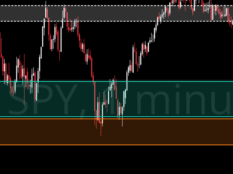What Happened?
Recently, the once popular crypto exchange, FTX, and former CEO Sam Bankman-Fried (SBF) have been under fire for a wide variety of fraud-based violations. In short, FTX & its executives stole and used customer funds in order to afford their lavish lifestyles, which included hundreds of millions of dollars in houses and properties. However, on Monday, 12/12, SBF was arrested for fraud and conspiracy.

What We Know
Federal prosecutors have issued a criminal indictment against the founder of the now-defunct FTX crypto exchange, who was arrested in the Bahamas. In addition, the accused faces civil securities fraud charges. To examine the collapse of FTX, a congressional committee is conducting a hearing.
- On Tuesday, the U.S. Department of Justice’s Southern District of New York announced an indictment against Mr. Bankman-Fried, accusing him of lying to investors from the start of his company. He was charged with eight counts, including wire fraud on customers and lenders, and of conspiring to defraud the United States, and violate campaign finance laws.
- The Securities and Exchange Commission (SEC) has filed civil charges accusing Mr. Bankman-Fried of deceiving investors who poured almost $2 billion into FTX and defrauding FTX customers. The Commodity Futures Trading Commission (CFTC) also brought a case against Mr. Bankman-Fried, alleging fraud and misrepresentation.
- At approximately 6 p.m., Mr. Bankman-Fried was arrested at his apartment complex, as per a statement released by the Bahamian police. It is uncertain when Mr. Bankman-Fried might be extradited to the United States, as the process may take weeks up to months, pending the defendant's response. However, the Bahamas does have an extradition treaty with the United States.
- Mr. Bankman-Fried was initially scheduled to appear before the House Committee on Financial Services to testify about FTX’s collapse, but the hearing is proceeding without him. Instead, John J. Ray III, who took over FTX after its bankruptcy, provided testimony. “Even with most failed companies, we have a fair roadmap of what happened. We’re dealing with a literal paperless bankruptcy,” Ray said.
What This Means For You
Going forward, there will likely be large pushes from the SEC to further regulate the cryptocurrency market. This will likely not be limited to CEXs (central exchanges, like Coinbase), but to DEXs (decentralized exchanges) and DeFi (decentralized finance) as well. Now, depending on your thoughts on crypto, this might be a good thing! There will be more safety measures in place and your funds will be much more secure, which is a good thing. On the other hand, the whole idea of crypto is to move away from centralization and governmental agencies, etc.
Closing Thoughts
The FTX and Sam Bankman-Fried debacle has been horrendous for everyone involved in the crypto markets, right now. However, I believe that this is a good thing for crypto in the long run, if it is going to stick around. The future of cryptocurrency is uncertain, but if it continues to become more centralized, it could have a significant effect on the global economy. It could lead to increased financial stability and greater accessibility to banking services, as well as more efficient international payments. Centralization of cryptocurrency could also bring more transparency and security to transactions, making it easier for governments to track and combat criminal activities. Additionally, centralized cryptocurrencies could help reduce market volatility as well as reduce the cost of transactions and financial services.



